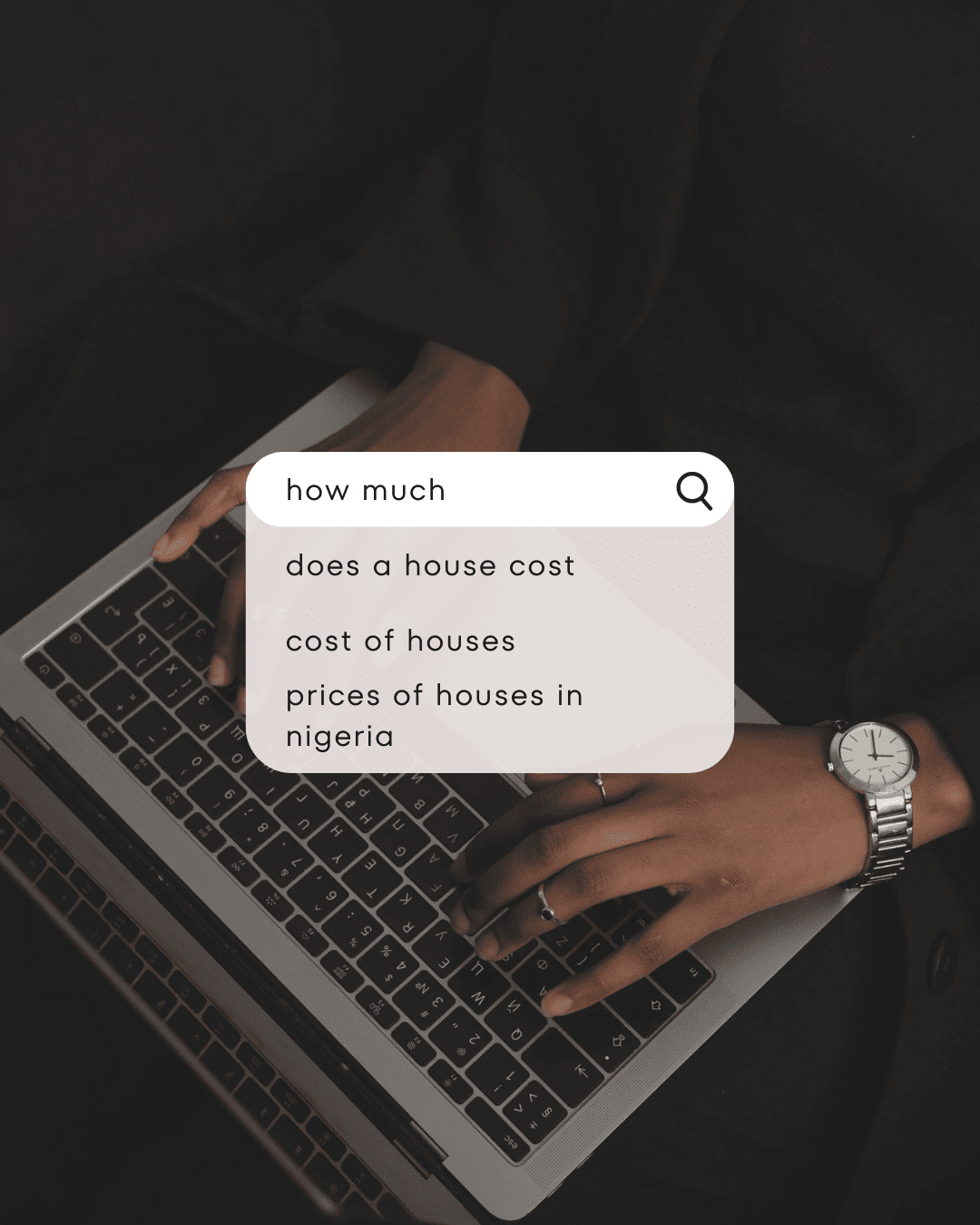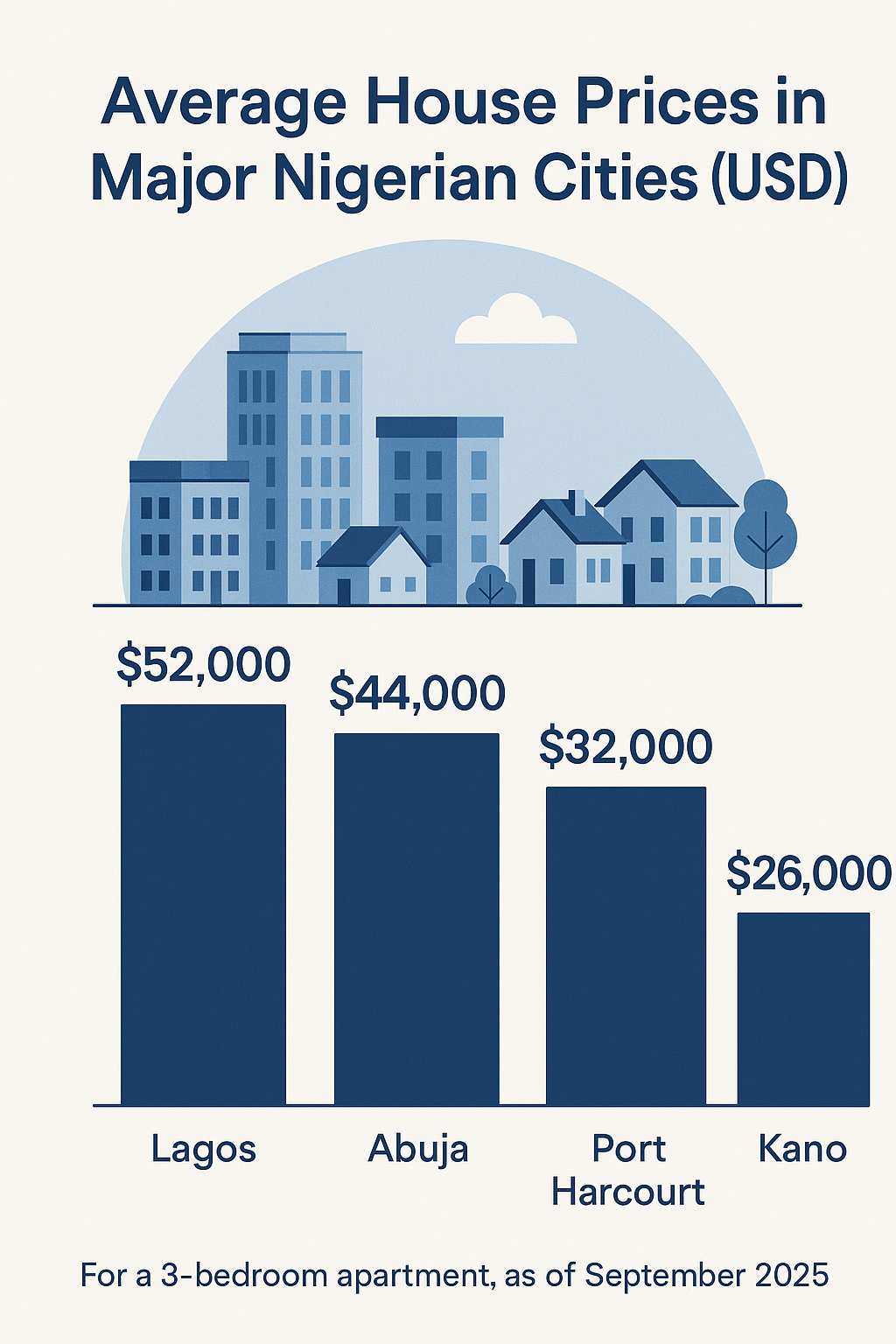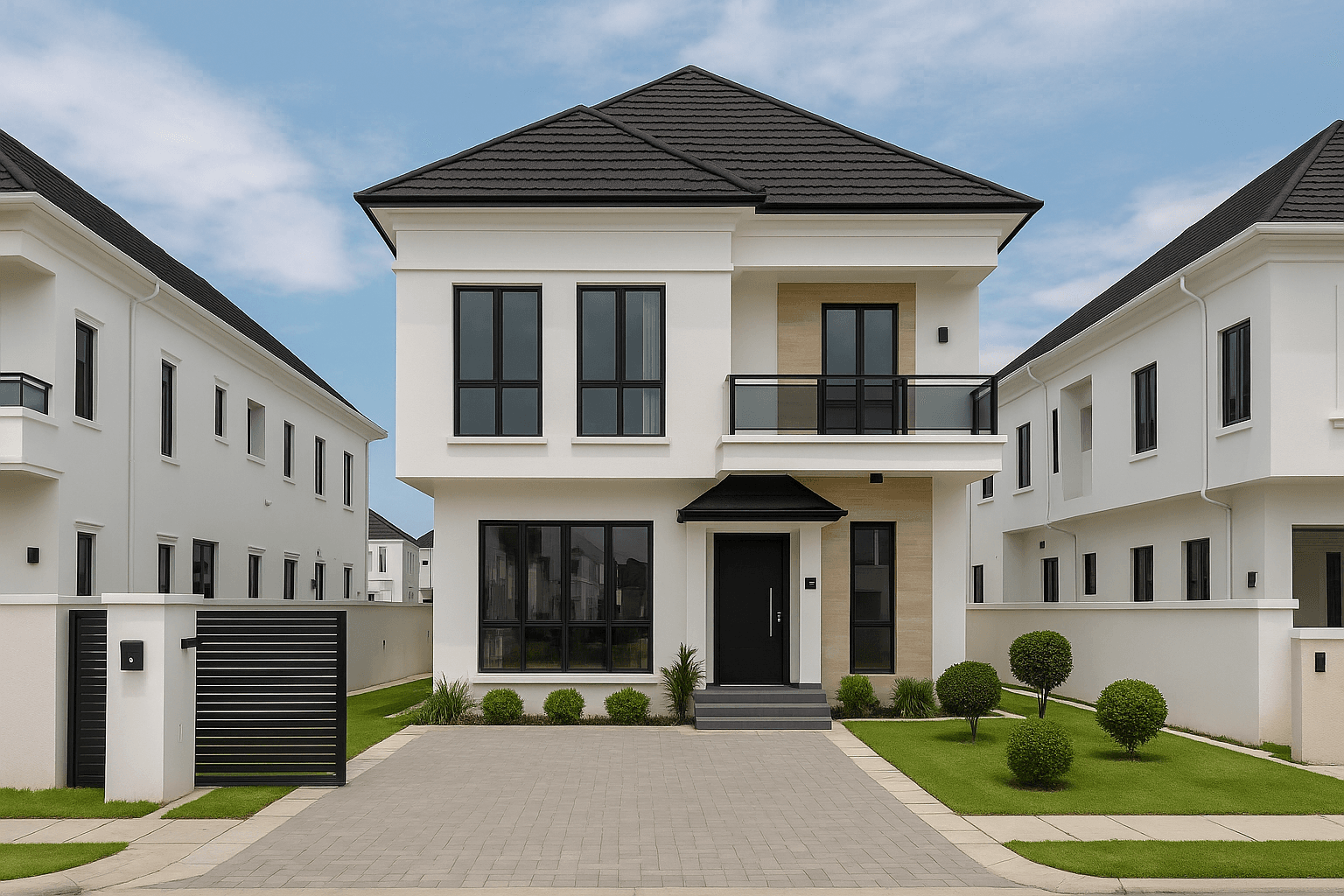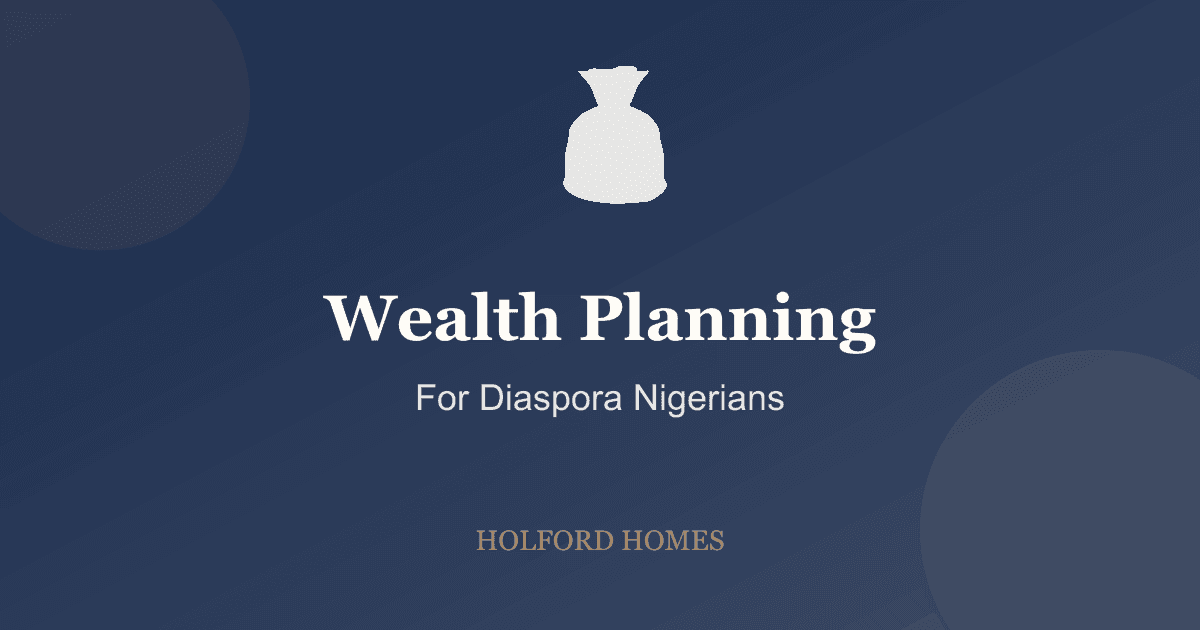How Much Does a House Cost in Nigeria in USD?

Discover the average cost of buying a house in Nigeria (in USD), including breakdowns by city, additional fees, and tips for budgeting your real estate investment.
Determining how much a house costs in Nigeria depends on location, economic conditions, and property type. Let's explore the major factors and what you can expect to pay in USD.
What Affects Property Prices in Nigeria?
- Location – Prime urban areas like Lagos and Abuja command higher prices due to better infrastructure, amenities, and job opportunities.
- Economic Conditions – Inflation, interest rates, and the Naira's exchange rate affect building material costs and affordability.
- Demand & Supply – High population growth and limited housing stock drive up prices in major cities.
- Documentation & Ownership – Clear property titles and legal verification add value.
- Construction Costs – Labor and materials fluctuate with inflation and global supply chains.
House Prices in Nigeria in USD (2025 Estimates)
As of October 2025, the exchange rate is roughly ₦1,200 = $1.
Here's what typical properties cost in major cities:

| City | 3-Bedroom Apartment | 4-Bedroom Duplex | Detached House |
|---|---|---|---|
| Lagos | $17,000 – $67,000 (mid-range) $42,000 – $167,000+ (premium) |
$42,000 – $250,000+ | $67,000 – $417,000+ |
| Abuja | $13,000 – $50,000 (suburbs) $33,000 – $125,000 (city center) |
$29,000 – $167,000+ | $50,000 – $333,000+ |
| Port Harcourt | $10,000 – $38,000 | $21,000 – $83,000+ | $33,000 – $167,000+ |
| Ibadan | $7,000 – $23,000 | $13,000 – $50,000 | $21,000 – $83,000 |
| Enugu | $8,000 – $29,000 | $17,000 – $58,000 | $25,000 – $100,000 |
Note: Prices vary significantly based on specific neighborhood, property condition, and documentation status. Premium areas in Lagos (Ikoyi, Victoria Island) and Abuja (Maitama, Asokoro) command much higher prices.
Real-World Example: Buying a 3-Bedroom Apartment in Lagos
Let's break down the total cost for purchasing a ₦40 million property in a mid-range Lagos area like Ajah (approximately $33,333):
| Item | Naira Amount | USD Equivalent | Notes |
|---|---|---|---|
| Property Price | ₦40,000,000 | $33,333 | Base property cost |
| Legal Fees | ₦400,000 – ₦800,000 | $333 – $667 | Title verification & documentation |
| Certificate of Occupancy (C of O) | ₦800,000 – ₦1,500,000 | $667 – $1,250 | If property doesn't have one |
| Governor's Consent | ₦600,000 – ₦800,000 | $500 – $667 | Required for ownership transfer |
| Transfer/Registration Fees | ₦800,000 (2%) | $667 | Paid to Land Registry |
| Stamp Duty | ₦600,000 (1.5%) | $500 | Government tax |
| Survey & Valuation | ₦300,000 – ₦500,000 | $250 – $417 | Property assessment |
| Agent Commission (if applicable) | ₦1,200,000 (3%) | $1,000 | For agent services |
| Total Estimated Cost | ₦44.7M – ₦46.4M | $37,250 – $38,667 | 12-16% above purchase price |
Key Insight: Budget an additional 12-16% of the property price for all legal and administrative costs.
Additional Costs You Should Know (in USD)
| Fee Type | Amount (USD) | Purpose |
|---|---|---|
| Legal Fees | $83 – $250 | Documentation & representation |
| Certificate of Occupancy (C of O) | $417 – $833 | Ownership recognition |
| Transfer Fees | 1–2% | Ownership transfer cost |
| Stamp Duty | 1.5–2% | Tax on property transaction |
| Land Survey | $83 – $250 | Property mapping |
| Valuation Report | $83 – $250 | Property appraisal |
Investment Returns: What to Expect (USD)
Understanding potential returns helps justify the investment:
| City | Average Rental Yield | Annual Appreciation | Best For |
|---|---|---|---|
| Lagos | 6-10% | 15-25% | Quick ROI, short-let rentals |
| Abuja | 5-8% | 10-20% | Stable income, premium tenants |
| Port Harcourt | 8-12% | 10-18% | Corporate/expatriate rentals |
| Ibadan | 5-7% | 12-18% | Affordable entry, student housing |
| Enugu | 5-8% | 10-15% | Retirement, diaspora investment |
Example Investment Scenario (Lagos)
- Purchase: $50,000 (₦60M) for a 3-bedroom in Ajah
- Rental Income: $500-600/month ($6,000-7,200/year)
- Rental Yield: 12-14% annually
- Property Appreciation: 15-20% per year in emerging areas
- 5-Year Value: Estimated $100,000-125,000
Currency Considerations for International Buyers
Exchange Rate Impact
The Naira-to-Dollar exchange rate significantly affects your investment:
- 2020: ₦380 = $1
- 2023: ₦750 = $1
- 2025: ₦1,200 = $1
What this means: A property worth ₦40M was $105,000 in 2020 but is $33,333 in 2025. Nigerian real estate has become significantly more affordable for USD holders, but Naira returns remain strong.
Money Transfer Best Practices
- Wise (formerly TransferWise) – Low fees, competitive rates
- Western Union – Fast but higher fees
- Bank Wire Transfers – Secure but slowest, highest fees
- Cryptocurrency – Emerging option, but verify legality
Tip: Always transfer to verified company accounts, never personal accounts.
Common Questions
Can foreigners buy houses in Nigeria?
Yes! Foreign nationals can purchase property with Governor's Consent and proper documentation. The process takes 2-3 months.
Do local banks finance real estate purchases for foreigners?
Limited options exist. First Bank, Zenith Bank, and Stanbic IBTC offer diaspora mortgage programs requiring 25-30% down payment at 18-23% interest rates.
What about property tax?
Annual tenement rates range from 0.5-1% of property value, varying by state and location.
Should I buy in Naira or USD?
Always transact in Naira (legal currency). Convert USD at favorable rates before purchase.
What's the best city for USD investors?
Lagos offers highest returns and liquidity. Abuja provides stability. Ibadan offers low entry points.
Making the USD-to-Naira Investment Work for You
Advantages for USD Holders
- Currency Arbitrage – Naira depreciation makes properties cheaper in dollar terms
- Rental Income – Earn in Naira (local currency) with strong yields
- Appreciation – Property values increase in Naira terms
- Hedge Against Inflation – Real estate preserves wealth better than cash
- Legacy Building – Own tangible assets in your home country
Smart Investment Strategies
- Start Small: Consider Ibadan or Enugu for lower entry ($10,000-25,000)
- Focus on Rental Yield: Target areas near universities, business districts
- Buy During Off-Peak: Mid-year typically sees less competition
- Partner with Locals: Use trusted property managers for oversight
- Diversify: Don't put all funds in one property
Final Thoughts
Nigeria's real estate market presents unique opportunities for international investors, especially those holding USD. With property prices 60-70% lower in dollar terms compared to 2020, it's an opportune time to invest.
However, success requires:
- Thorough research and understanding of local markets
- Professional legal and agent support throughout the process
- Realistic expectations about timelines and market dynamics
- Long-term perspective – Nigerian real estate is not a quick flip
The combination of strong rental yields (6-12%), solid appreciation (10-25% annually), and favorable exchange rates makes Nigerian real estate an attractive investment for diaspora Nigerians and international investors alike.
Remember: Real estate investment is about location, timing, and proper documentation. Work with licensed professionals, verify all documents, and never rush the process.
Written by: Akin Oduwole
Helping Nigerians and investors make smarter property decisions.

